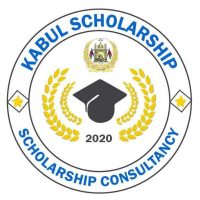Job Description
Introduction:
Securing a scholarship can greatly alleviate the financial burden of pursuing higher education. However, the application process often requires specific documents to evaluate candidates effectively. To assist aspiring scholarship applicants for the 2024-2025 academic year, we have compiled a comprehensive guide outlining the essential documents needed to increase your chances of success.
1. Academic Transcripts:
Providing official academic transcripts from your previous educational institutions is crucial. These transcripts should accurately reflect your academic performance, including grades, GPA, and any honors or awards received. Ensure that transcripts are certified and translated if necessary.
2. Letters of Recommendation:
Most scholarship applications require letters of recommendation from individuals who can attest to your academic abilities, character, and potential for success. Reach out to professors, teachers, or employers who can provide strong recommendations that highlight your strengths and achievements. for more click here
3. Personal Statement or Essay:
A well-crafted personal statement or essay is an opportunity to showcase your unique qualities, aspirations, and motivations. Use this document to articulate your academic and career goals, any challenges you have overcome, and your commitment to making a positive impact in your field of study. click here
4. Curriculum Vitae or Resume:
A comprehensive curriculum vitae (CV) or resume is vital in highlighting your educational background, work experience, extracurricular activities, leadership roles, and community involvement. Tailor your CV or resume to align with the scholarship’s specific requirements and emphasize relevant achievements. click here
5. Financial Documents:
To demonstrate your financial need, you may be required to provide financial documents such as bank statements, income tax returns, or proof of income. Ensure these documents accurately reflect your financial situation and support your scholarship application.
6. Proof of Language Proficiency:
If your scholarship program requires proficiency in a specific language (e.g., English), you may need to submit standardized test scores, such as TOEFL or IELTS. Provide official score reports to verify your language skills and eligibility for the scholarship.
7. Proof of Citizenship or Residency:
Scholarships may have specific eligibility criteria based on citizenship or residency. Prepare documents such as a passport, national identification card, or residency permit to verify your status and eligibility for the scholarship.
8. Project Proposal or Research Plan:
Some scholarships may require applicants to submit a project proposal or research plan, especially for advanced or specialized programs. Clearly outline your proposed project, research objectives, methodology, and expected outcomes.
9. Other Supporting Documents:
Scholarship applications may require additional documents such as certificates of participation in extracurricular activities, proof of volunteer work, published research papers, or any other relevant achievements. Include these documents to strengthen your application.
Conclusion:
Applying for scholarships in the 2024-2025 academic year requires careful preparation and the submission of essential documents. Be sure to check the specific requirements for each scholarship program and allow ample time to gather and prepare the necessary documents. By following this comprehensive guide, you can enhance your scholarship application and increase your chances of receiving financial support for your educational journey. Good luck!



